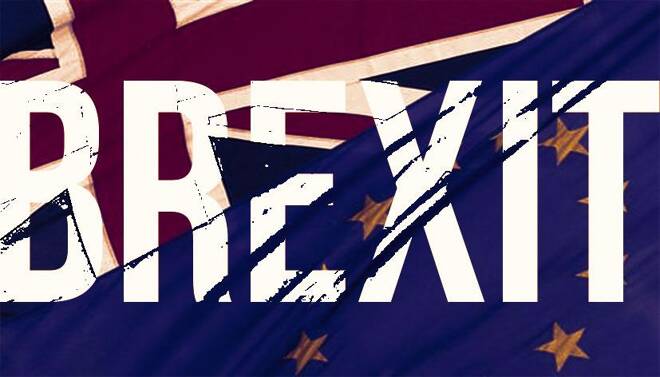Advertisement
Advertisement
Brexit Could Be Decided This Week
By:
Market focus this week will shift to the EU meeting on the 18th and 19th with the main topic of discussion being the possible exit by the UK. Investors
Market focus this week will shift to the EU meeting on the 18th and 19th with the main topic of discussion being the possible exit by the UK. Investors and even the average man on the street expected to keep close tabs on the outcome of the European Council meeting on 17-18 February, in Brussels.
Should European Union heads of state agree to EU council president Donald Tusk’s draft proposal for the UK to remain inside the EU club then that would kick-off the countdown for the UK’s referendum on membership, which was likely to be called for 23 June as long as an agreement between Cameron and EU leaders was forthcoming before 3 March, Morgan Stanley said in a research note e-mailed to clients.
His speech was a final set-piece event before meeting other EU leaders in Brussels next week, where he will need to win the backing of all 27 other member states for his demands. He was due to hold talks with Chancellor Merkel on the fringes of the event, hoping to win her support in preventing key British demands from being watered down during the summit.
Mr Cameron knows that he needs to secure terms at least as good as those outlined by the European Council president Donald Tusk last week if he is to have any chance of claiming the renegotiation as a success.
The Prime Minister, who spoke to his Spanish counterpart Mariano Rajoy on the phone before leaving for Germany, is keen to get a final deal in place in time for him to put the new terms of membership to the British public in a referendum in June.
The PM pledged “hand on heart” that he had achieved the renegotiation goals set out in his manifesto, but there are in fact substantial shortfalls – notably on a failure to totally ban EU migrants from claiming in-work benefits for four years.
Bank of America Merrill Lynch Global Research have warned on the near-term negative impacts posed to the economy and pound sterling should the United Kingdom vote to exit the European Union. There is little economic case for the UK to leave Europe warn Bank of America and risks to the pound sterling and economy are skewed to the downside.
The negative analysis on Brexit echoes similar investment bank warnings on the issue with Morgan Stanley suggesting growth would be stunted by such a move.
“In our view there would be serious economic fall-out for the UK in the short- and long-term if voters choose to leave the EU,” says a note from BofA Merrill Lynch. The value of the GBP relies heavily on the flow of money into the UK made by inward investment.
Investors crave a stable political environment and uncertainty over the UK’s future membership of the European Union will have a predictable negative impact.
The British Prime Minister, David Cameron, and the German Chancellor, Angela Merkel, presented a united front in Hamburg over the weekend in a bid to persuade the British public to vote to remain within the European Union, and their fellow European leaders to back Mr Cameron’s reform agenda.
Mr Cameron has until this Friday to secure a deal with the other European Union heads of state on a package of reforms which he can sell to the British people as a reason for remaining within the EU. But he needs all 27 member states to back the proposed changes, and so far a number – including France’s François Hollande, Greece’s Alexis Tsipras, Romania’s Klaus Iohannis and the Czech premier, Bohuslav Sobotka – are showing signs of doubt.
“This is not only a problem for the United Kingdom or for the relations between the EU and the UK. In fact, this is about the future of Europe,” EU President Donald Tusk warned regional representatives in Brussels on Wednesday.
Tusk will embark this week on a whirlwind tour of five European capitals to sell a compromise reform package that he hopes will convince Britons to vote in favor of continued EU membership. However, other EU leaders must agree to it first.
Cameron ‘s most controversial demand has been a request to restrict access to benefits for other European citizens working in Britain, an effort to limit the number of people seeking jobs in Britain. However, the free movement of workers is one of the EU ‘s most cherished achievements. “We have got to show our population that Britain’s influence can be used to make real changes in Europe and that’s what David Cameron is trying to do through his renegotiation,” he said. “We can only make those changes from the inside; we can’t solve the problems of companies not paying their tax or Europe’s failure to tackle the refugee crisis from the outside.”
About the Author
Barry Normanauthor
Advertisement
